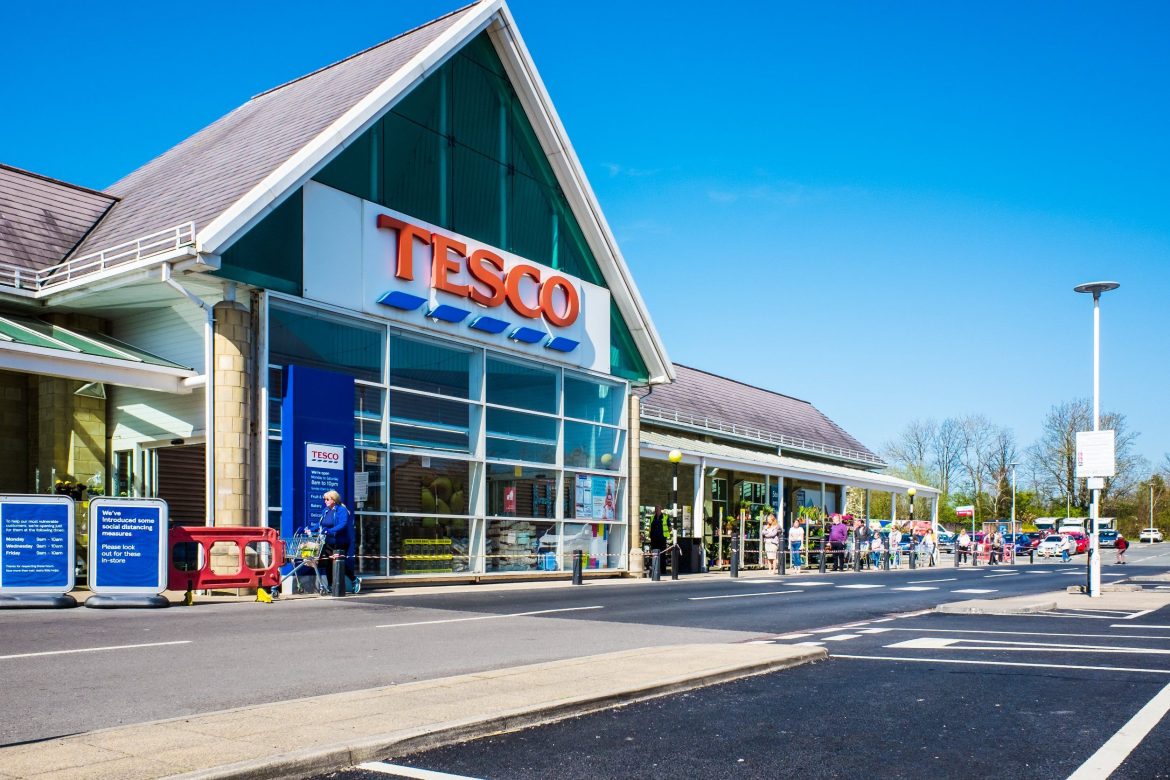Tesco (LON: TSCO) share price is firing on all cylinders and beating other retail juggernauts like Target, Walmart, and Kroger. It has jumped by over 140% in the last five years while the three have jumped by 56%, 113%, and 120%, respectively.
Tesco, the biggest retailer in the UK, has also done better than the SPDR Retail ETF (XRT), which has risen by 81% in the last five years.
The same happened in the last 12 months as Tesco jumped by almost 50% while the others rose by less than 30%. Other British retailers like Marks and Spencer have also done better in the last 12 months, as shown below.
Tesco vs Walmart vs Target vs Kroger vs Marks & Spencer
Tesco’s numerous catalysts
Tesco share price has done well as it continues to face numerous catalysts. First, the company is benefiting from the efforts of the last management to exit some of its most unprofitable countries. It exited its US presence in 2013 as it struggled to compete with the likes of Target and Walmart.
Tesco also exited its South Korean presence in 2015, its Turkish business in 2016, China in 2020, and Thailand and Malaysia in 2020. By exiting these markets, Tesco became a leaner organisation that focuses on just the UK.
Second, Tesco has continued to get rid of its non-core businesses. Earlier this year, the company exited the banking industry by selling its bank to Barclays in a deal worth over £700 million. This was a mutually beneficial deal since it allowed Tesco to narrow its focus to the retail industry and for Barclays to grow its market share in the UK, a key priority.
Third, Tesco has continued to grow its branch network. It has over 4,942 branches in the UK, up from 4,613 in 2020. Having these many branches has helped its products be more accessible, which has helped it to grow its market share. Its scale has also helped it have more power to negotiate with its suppliers.
In addition to its branch network, Tesco has improved its online sales, becoming one of the biggest e-commerce companies in the UK. Data by SimilarWeb shows that Tesco’s website had over 28.6 million visitors in July, a small 2.78% increase from June.
These numbers have helped Tesco to gain its market share in the retail sector. A report by Kantar noted that the company has a 27.8% share of sales followed by Sainsbury, which has a 15.2% share.
Tesco financial results
The most recent financial results showed that Tesco’s business was doing well. Its revenue rose by 4.5% in the first quarter to over £15.5 billion. Tesco Bank contributed to £271 million of this revenue.
The numbers revealed that its UK revenue rose by 5.3% to £11.36 billion while its ROI segment rose to over £731 million.
The key laggard was its Booker and Central Europe business. Booker, its wholesale chain, saw its revenue dip by 2% to £2.2 billion as its tobacco and food logistics sales fell by 5.2% to 6.8%, respectively. Tesco’s fuel sales dropped to £1.6 billion.
Its revenue numbers were better than expected and were helped by higher volume and pricing. The management hopes that the trend will continue in the coming years.
Tesco is still cheap
Despite its strong rally, there are signs that Tesco is still a relatively cheap retail stock to buy. Data by SeekingAlpha shows that the company is trading at a price-to-earnings ratio of 15.4.
In contrast, Kroger has a multiple of 17.7 while Target and Walmart have multiples of 15.6% and 32%. Tesco trades at a price-to-book ratio of 2.2 while Kroger, Target, and Walmart have multiples of 3.02, 4.8, and 7.36, respectively.
Additionally, Tesco has a higher dividend yield than the other retailers. Its yield stands at over 4.5%, making it an ideal company for income investors. Tesco also has a better balance sheet with net debt of $12 billion compared to the three, which have $16.45 billion, $15 billion, and $54 billion.
Tesco share price analysis
Tesco stock chart by TradingView
Turning to the weekly chart, we see that the TSCO stock price has been in a strong bullish trend for a while. The stock has remained above the 50-week Exponential Moving Average (EMA).
Most notably, the Percentage Price Oscillator (PPO) has jumped to its highest point since December 31st. The Relative Strength Index (RSI) and the Stochastic Oscillator have moved to the overbought level.
Therefore, the stock will likely have a pullback as sellers target the 50-week moving average point at 320p. This pullback will likely happen on or before October 3 when the company publishes its interim results for the 2024/25 year.
The post Tesco share price is beating Walmart, Kroger, and Target appeared first on Invezz

